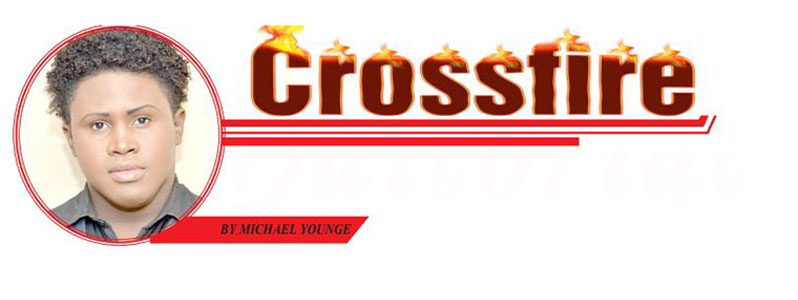THE world is changing; the role of information has changed in a society where there is widespread access to the Internet and World Wide Web. Information is now readily available, easily accessible, and verifiable. Anyone born in the past six decades would know at least where to find the basic information that they are looking for to quench their thirst for knowledge about politics, life, economics and health, etc, apart from the usual books.
Still, there are many countries in the world in this day and age that offer the public distilled and controlled information to make an informed choice, especially in politics. These countries feel that the information is too fleeting, too much, and sometimes very dangerous in influencing the public’s mind, so they seek to control access to it in the name of public good. After all, they feel that because of the many different sources and types of the information reaching the public, to avoid misinformation and disinformation growing in the societies, it is better that they regulate, restrict or control the information. So, their people are kept in official darkness about the different cultures and socioeconomic developments in the world.
The countries that do this mostly have characteristics of communism, authoritarianism, and totalitarianism.
There are other countries which are modern, liberal and free with the flow of information to their people; they do not restrict access to the Internet and information. The public is trusted to choose from a wide range of information and sources. These countries tend to be open, democratic and semi-democratic. They know the power of information, and encourage the public to access it responsibly, and trust the public to know the truth from lies and misinformation. They trust the public, which, in most cases, are intellectual and competent individuals, to distinguish between facts, opinions, and outright lies.
Closer to home, the Caribbean countries have evolved with time from having total control over the information to limited control. While the western world has free access to information, information communication technologies and technology, Caribbean countries are still playing catch up, and are lagging behind, due to no fault of their own, as history would explain.
Here at home, the government is investing heavily in the relevant information and communication sectors. More and more people have access to the Internet and World Wide Web. Guyana is removing all the controls and regulations it had on access to information, and is slowly positioning itself as a knowledge economy.
The media is free; there is freedom of the press and freedom of expression, regardless of the naysayers and organisations that complain when they are taken to task for the information they put out there in the public deliberately. Guidelines, rules and best practices are constantly reinforced for reporting and journalism, and information generally.
Even now, the government is constantly defending itself against deliberate misinformation and disinformation in the public about its policies and plans. It spends part of its time, too, setting the record straight on its record, and explaining away some of the bizarre and irrational policy positions of the Opposition. The Opposition creates a confusion in the public domain by saying things that are not realistic and true, but are popular with the public. They sound nice and flowery to the public, but the government of the day knows the expensive price that they will have to pay if these things are allowed to go unanswered and unchallenged.
Access to more information from different sources by the public is good, and means that the government has to always have its public relations machinery oiled and ready to offer the public factual and true information. It must always be ready to clear up the disinformation, misinformation and lies that are purposefully placed in the public domain.
For example, General Secretary and Vice-President Dr. Bharrat Jagdeo’s press conference is crucial to government tackling the narratives that the opposition parties feed the public in doses each week that could see the public getting the wrong idea or impression about government and his party. Many times, the opposition parties are caught lying and peddling inaccuracies through their commentaries, statements and positions in the traditional and social media.
Jagdeo’s press conference is an important part and staple of the government’s information and communication infrastructure. He effectively takes the entire opposition on, therefore leaving the President and Ministers to focus their attention on government business. The press conferences held by Jagdeo are widely viewed, and get under the opposition’s skin, constantly exposing their duplicitous nature and their misinformation.
This is why, too, the opposition can’t catch their breath and stand firm. While Jagdeo asks for the evidence and facts of wrongdoings, discrimination and racism, Opposition Leader Aubrey Norton, instead of presenting the information, which he says is easily accessible and everybody knows, does not present it and constantly shies away from quoting facts and statistics. Norton and the opposition do not believe in presenting empirically sound evidence when in and more so out of office. It does not help his case, and that’s why the public would always gravitate to Jagdeo and the government.
Norton and the opposition are not trusted as a source for information and truth. They are reactive, and are most times clueless about policy issues and policy making. They are textbook politicians from one era of Guyana’s past trying to sound realistic when faced with questions from the public and media. Be wary of misinformation. The truth and factual information do not wear clothes.


.jpg)











